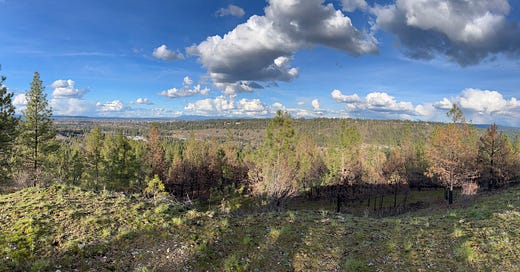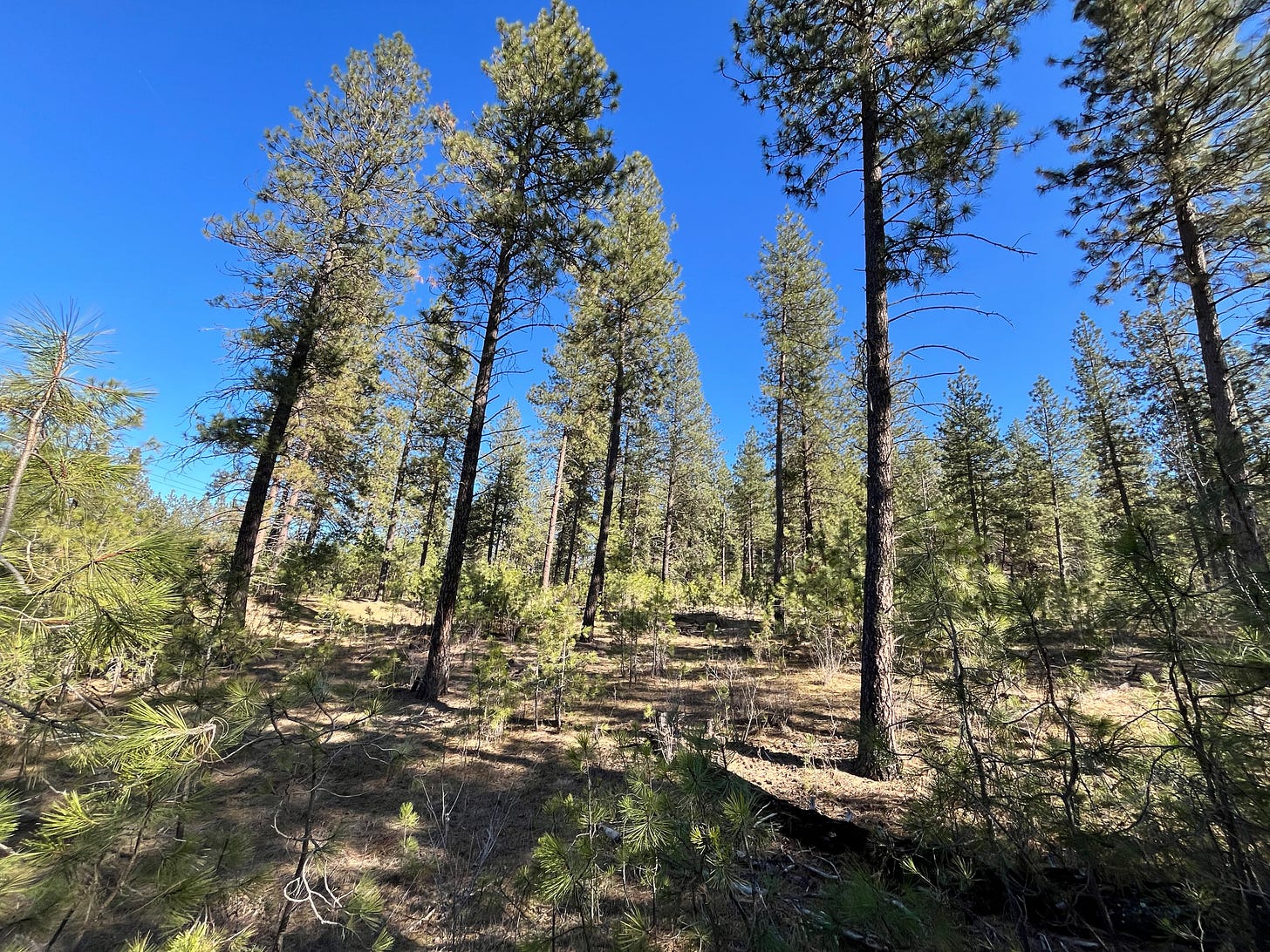Keep Public Land in the Latah Valley Public
The Department of Natural Resources Cannot Earmark Land for Conservation While Also Offering It For Development.
Writer’s Note: This Op-Ed was featured in the Sunday, January 5th publication of the Spokesman-Review Newspaper. I’ve included the full text below (given the paywall), a link to the Op-Ed on the Spokesman’s website, as well as citations/links for additional follow up.
So why did I write this? Because the flaws and deceit in this entire process committed by the DNR should be known publicly. By writing this, my hope is to hold DNR accountable so they fix these issues and better conserve public land for future generations. Enjoy.
It hurts when trust gets broken, doesn’t it?
Recently, mine was broken by Washington State’s Department of Natural Resources (DNR) - through their perversion of process in protecting Spokane’s Thorpe Rd Natural Area. If we care about the conservation of public lands for future generations, we must demand DNR’s accountability.
DNR manages and collects revenue on 5.6 million acres of forest, range, and agricultural lands statewide. Through timber sales, grazing leases, and renewable energy development, this revenue pays for things such as public education, hospitals and more. For better or worse, the DNR has functioned in this capacity for nearly 70 years.
Here in Spokane, DNR has managed Thorpe Rd Natural Area’s (Thorpe) 192 acres in the Latah Valley for decades. Since the late 2000s, DNR has declared this land “underperforming” - meaning they can’t turn a profit on its management. Thorpe is one of the few intact parcels of forestland within Spokane city limits, and is often used by outdoor recreationists looking to connect with nature within a 10-minute drive from downtown.
By law, DNR must make money from these managed lands. if they can’t, they consider the land a liability. That’s where the Trust Land Transfer program (TLT) comes into play. Created by DNR in 1989, this program transfers “underperforming” lands to local partners, with the Washington State Legislature funding DNR for the exchange. Win-win, right? DNR profits, and the land can now be managed by local entities (tribal governments, park systems, etc) to ensure its long-term protection for public benefit.
Given Thorpe's “underperforming” designation, the Spokane Parks Department successfully nominated the parcel to the TLT in 2023. In a recently improved process of the TLT, this and 30 other nominated parcels were reviewed by an independent statewide advisory committee. This group scored these parcels on their community support, public benefit, economic value, tribal support, and ecological value, with each committee member giving a score of 0-5 for each category. Some categories, such as tribal support and ecological value, are weighted stronger than others.
These parcels were scored and ranked from highest to lowest, with the top 8 getting funded by the legislature. Thorpe ranked 18th out of 30 - too low to get funded in the current legislative session. Upon review of this ranking process, the committee scores were quite inconsistent across Thorpe and other TLT parcels. Some members scored Thorpe a 0 or 1 on categories such as ecological value and tribal support, while others scored these categories 4 or 5. With such variation in scores, it begs the question - what information was presented to the committee by DNR that caused such scoring disparities?
The TLT program is a shining example of positive land conservation policy. It will hopefully be the solution for saving Thorpe and other parcels for decades to come. But it’s evident that the scoring process must be fixed by DNR. If this process was more rigorous, Thorpe would have likely scored much higher - and thus, it would have been funded by the legislature in its first round on the TLT.
Here’s where DNR truly broke trust - despite being earmarked for conservation in the TLT program, DNR has shockingly fast-tracked Thorpe for land exchange with a developer, Blue Fern, LLC, who has plans to convert Thorpe to close to 1000 homes. DNR has proposed this be done with an exchange of an urban property in Bellingham – a former Haggen Grocery store and parking lot – a swap that results in a net loss of public forestland. This move directly contradicts DNR's earlier decision to accept Thorpe as a TLT candidate - and they simply cannot commit a parcel to conservation through TLT while also shopping it in a private exchange.
There are a myriad of reasons why this exchange is a raw deal for Washingtonians - public recreation land will be lost, significant wildlife habitat destroyed, mistrustful breach of process by DNR, the list goes on. Not to mention that Blue Fern’s proposed development will not address key safety and affordable housing issues in the Latah Valley, which currently has a moratorium on new development given the lack of adequate infrastructure.
The DNR’s board will vote on this exchange during its next board meeting on January 7th. Nearly 90 organizations state-wide (and many in Spokane) have voiced their support for DNR to vote to delay the exchange in order to fix these procedural issues. From local businesses, City Councilmembers, to citizens, supporting the delay vote has substantial bipartisan support.
These contradictory actions by DNR set a dangerous precedent that public land earmarked for conservation is still for sale to the highest bidder. And that’s simply unacceptable for us citizens in Spokane and statewide. The DNR must earn back public trust in their ability to fairly conserve land for public benefit. They must be held accountable. Our public lands are not for sale.
https://www.spokesman.com/stories/2025/jan/05/brian-muegge-keep-public-lands-in-latah-valley-pub/
https://www.dnr.wa.gov/managed-lands/land-transactions/thorpe-land-exchange
https://washingtonstatestandard.com/2024/12/12/tension-mounts-over-state-plan-to-transfer-192-acres-in-spokane-to-private-developer/
https://www.spokesman.com/stories/2024/dec/02/spokane-city-council-asks-for-delay-to-transfer-of/





